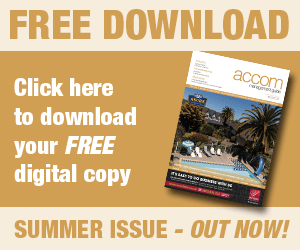Why everyone needs a grand plan
- Details
- Published Date
If, like the majority of New Zealanders, you devote more time each year to planning your annual holiday than you do to planning the protection of your family or business against financial risk, then something's amiss.
While it goes without saying that planning against potential financial risks is a lot trickier than deciding where to go for a holiday, you will never get to you where you want to go without knowing how you are going to get there. A plan or roadmap is essential.
Winston Churchill once said: "Let our advance worrying become advance thinking and planning."
The crucial part of financial risk planning is to create as much certainty as possible for the future. This ensures the continuity of family or business life when you are not there to do that. It becomes necessary to decide how your roles will or could continue. This could mean that other people will have to step in to help out.
Crossing the line
Throughout our lives we may face several relatively minor medical emergencies from which we will fully recover. But at some stage we may cross over the line and experience an illness from which we will not recover. However, we can plan for this eventuality so that we can still enjoy the best quality of life possible.
No-one can predict when you will suffer a serious illness or injury. But if you do, more than likely your health will gradually deteriorate before the inevitable end. For some people, this process will be very quick – perhaps through a car accident or the sudden onset of a terminal illness. However, for most people, this is a gradual but inevitable process.
Due to advances in medical science, we have a greater chance of surviving a serious medical condition. In many cases this survival period can be measured in years. It is important to understand that where in the past a serious medical condition often led to swift death, this is no longer the case – with consequential effects on lifestyle, family and business.
"It won't happen to me!"
We all like to think that we are invincible, but the reality is we are not. Accidents happen and, as we age, our chances of becoming seriously ill or disabled increase.
Take a look at the facts:
Cancer and heart disease are the major causes of death in New Zealand.
Up until 1990, heart disease was the major cause of death, but since 1993, cancer has become the leading cause.
Two out of five people will be unable to work for six months or more because of sickness or an accident at some time between the ages of 30 and 65.
Two out of five people will suffer a critical illness before they reach age 65.
The leading cause of disability is a disease or illness (40 per cent), followed by an accident or injury (30 per cent). *
Understanding these statistics and their implications has led to the development of a product that pays a lump sum if the life assured contracted any one of a number of defined 'trauma' conditions. This product is also known as Critical Illness insurance or Living Assurance. Examples of the types of conditions it covers include: cancer, heart disease and strokes.
Being diagnosed with one of these conditions means you will have reached a fairly significant point in your life and you may well need to reassess your finances and make a few changes. Instead of just servicing your debts, it may be better to pay them off.
If you do recover and can go back to work:
• Will your job still be there?
• Will any job be there?
• How long will it be before your income is back to what it is now?
• Should you save some of this payment to offset your lost future income?
• What about creating a cash reserve for your family?
• What about creating a cash reserve to buy your business partner's shares?
• What about creating a cash reserve to protect your business against the financial impact of the loss of a key person?
Devastating consequences
While the critical condition sufferer may recover medically, the impact of the illness on their finances can be devastating. Many people depend on the continued success of their career or business to achieve their financial security goals. Many people make some form of medical recovery, but the likelihood of making a financial recovery is less certain if they are unable to work in their previous employment, or they are forced to stop work completely for medical reasons.
* Sources: Health Information Service, ACC BERL Report – November 1996, General Cologne Re. Australia 2002, Statistics NZ 2004.


